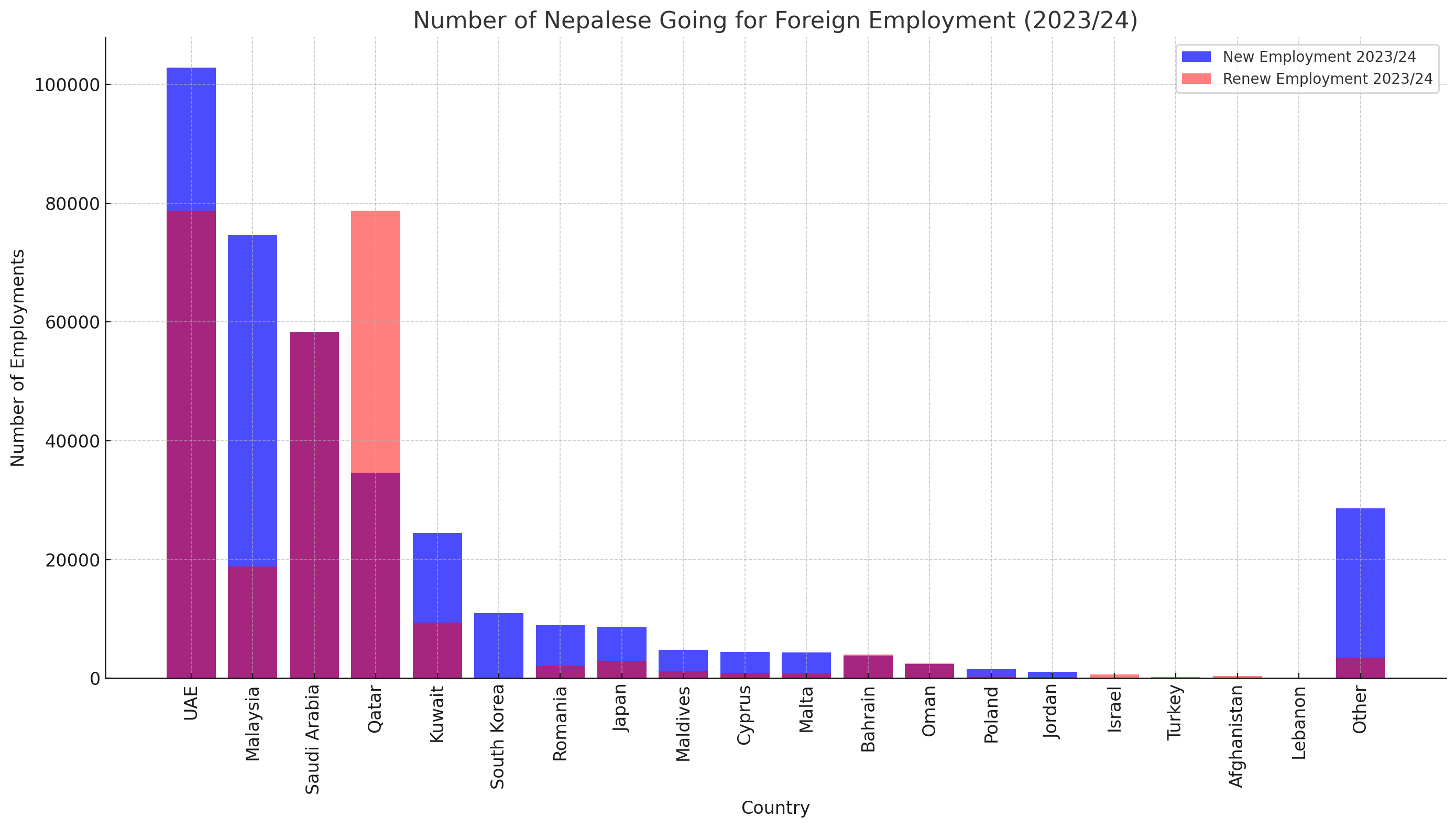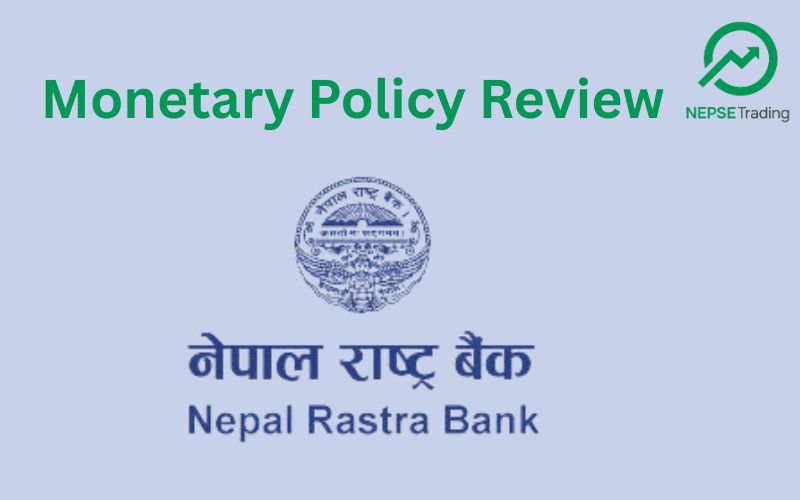By Sandeep Chaudhary
Exploring the Trend: Nepalese Workers Seeking Opportunities Abroad by Country

Kathmandu, June 12, 2024 - According to recent data, the number of Nepalese going for foreign employment has seen a substantial rise in the fiscal year 2023/24. The figures, published in Table 21 of the Department of Foreign Employment's latest report, show a marked increase in both new institutional and individual departures and renew entries, underscoring the ongoing economic challenges and the quest for better opportunities abroad.

Here is the chart visualizing the number of Nepalese going for foreign employment in 2023/24, both for new employment and renew entries.
Interpretation:
UAE: The leading destination for new employment, with 102,844 new contracts, significantly higher than other countries. It also maintains a strong position in renewals with 52,650.
Malaysia: While it saw a massive increase last year, the new employment numbers have drastically fallen by 62.4% this year to 74,707.
Saudi Arabia: Continues to be a major destination with stable renew entries at 58,373, showing a 16.8% increase.
Qatar: Both new and renew entries remain high, making it a key destination. New entries are 34,658, while renewals are 78,777.
Kuwait and Japan: Show notable increases in new entries. Japan, in particular, shows a significant rise in new employment by 97.3%.
New Employment Opportunities Surge
The data reveals a significant uptick in the number of Nepalese securing new employment contracts abroad. The United Arab Emirates (UAE) has emerged as the leading destination, with 102,844 Nepalese heading to the Gulf nation, marking a 128.2% increase compared to the previous ten months. Similarly, Malaysia, which saw a dramatic rise last year with 198,606 new workers, experienced a sharp decline of 62.4% this year, resulting in 74,707 departures.
Saudi Arabia remains a crucial destination despite fluctuations, with 58,258 new employments, a 31.2% increase from the previous period. Qatar, Kuwait, and Japan also saw considerable numbers of new entrants, indicating a diverse range of opportunities attracting the Nepalese workforce.
Renewed Contracts Indicate Stability
Renew entries, which reflect the stability and continued demand for Nepalese workers abroad, showed mixed trends. Qatar maintained its position as the top destination with 78,777 renewals, a slight increase of 1.3% from the previous period. Saudi Arabia and the UAE followed, showing modest growth of 16.8% and 6.8%, respectively.
However, some countries like Malaysia and Kuwait saw a decrease in renewals, indicating possible shifts in the labor market or changes in employment policies.
Economic Implications
The significant increase in foreign employment, particularly in the UAE and other Gulf countries, suggests that Nepalese workers are increasingly seeking opportunities abroad due to domestic economic challenges. The data points to a potential dependency on remittances, which are vital for Nepal's economy.
The fluctuations in countries like Malaysia and the consistent demand in Qatar and Saudi Arabia highlight the changing dynamics of the global labor market. For Nepal, this trend underscores the need for robust policies to manage the workforce's outflow and ensure their welfare abroad.
Government Response
In response to these trends, the Nepalese government has been working to enhance the support system for its migrant workers. Initiatives include better pre-departure training, legal assistance, and efforts to secure more favorable working conditions through bilateral agreements.
As the global labor market evolves, Nepal must adapt to these changes, ensuring that its citizens are well-prepared and protected in their pursuit of better opportunities abroad. The rising numbers in foreign employment highlight the resilience and adaptability of Nepalese workers, as well as the critical role they play in the nation's economic fabric.
In conclusion, while the increase in foreign employment presents opportunities, it also calls for comprehensive strategies to address the underlying economic challenges and support the workforce both at home and abroad.









